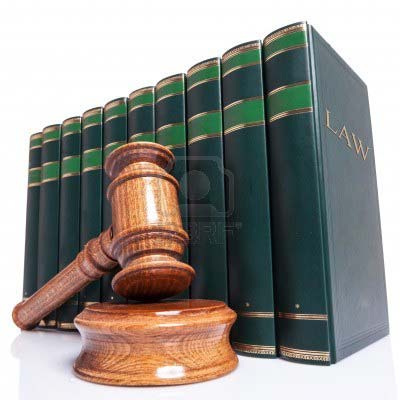Summary: There is still controversy over what evidence that Acting Justice Robert Stolz will allow Dewey defense to introduce to the Jury in this case.
Prior to the trial of the former Dewey & LeBoeuf executives, on Tuesday a New York City judge ruled that Dewey defense can use the argument that, if it had not been for the resignation of partners and the inflammation of the prosecutors’ investigation against Dewey, the firm would have the ability to “right itself and pay its debt.”
The jury selection process will begin on April 27th for the case against Dewey, executive director Stephen DiCarmine, chairman Steven Davis, and CFO Joel Sanders. Prosecutors have claimed that the trio intentionally committed fraud on a massive scale.
NYC Assistant District Attorney Peirce Moser informed Acting Justice Robert Stolz during a Tuesday hearing that the prosecution intends to reduce the charges by three counts of falsifying business records, leaving the defense to defend 100 counts.
The defense and prosecution have disputed what evidence will be allowed to be presented to the jury during trial. Stolz confirmed that both parties have requested that evidence on what determined Dewey’s bankruptcy be limited.
“Quite obviously, the People are entitled to prove that Dewey expired, since that was the immediate cause of the loss to the financial institutions alleged to have been victimized in this case.” Stolz said in People v. Davis, 773/14.
He also mentioned that the prosecutors have decided to accuse the indicted Dewey executives with larceny on the argument that the trio did not have the capability to repay the financial intuitions.
Stolz also said that the Dewey frontrunners, “should be able to prove, if they can, that they acted in a good faith belief that Dewey would be able to right itself and pay its debts and that, but for the unexpected departure of income-producing partners and the publicity of the investigation, it would have.”
Court papers that the defense presented state that even after “a cabal of important partners abandoned the firm” in March of 2012, there were still several high yield income-producing partners that remained with the firm. These partners formed a new firm structure and collaborated a plan to redeem the firm.
“The firm was actively involved in merger talks with other law firms which, had any succeeded, would have saved the firm,” the defense stated. “The evidence that the district attorney’s investigation caused the bankruptcy is stronger than any attempt to show that these defendants caused it.”
The defense insists that a day after the firms partners were informed that the Manhattan District Attorney’s Office opened an investigation on Davis, merger negotiations with Baker & McKenzie ceased. In the next few days, all mergers involving SNR Denton and Greenberg Traurig also ended. This led to the ultimate decision for Dewey to file bankruptcy.
Stolz decided that the defense cannot advise the jury that there is any correlation between the investigation and bankruptcy. The crimes that are in question took place from November 2008 to March 2012. The prosecution also has proof of several “bad acts” prior to the indicated time frame including emails between the defendants.
The only evidence that Stolz will permit is an email from March 2008 between Sanders, who is one of the seven Dewey staff members that pleaded guilty and signed cooperation agreements, and billing director Lourdes Rodriguez. According to the prosecution, this email, copying DiCarmine, stated that Sanders questioned Rodriguez, “I asked you to bill $10M tier 2 time-not $5M-what happened? I will be in breach on the bank covenants. Was I not clear in our meeting?”
The prosecution claims that “Tier 2 time” means that the firm would invoice the clients for the work with the intent to never send the invoice to the client.
Stolz claims that this evidence is necessary to establish Sanders’ and DiCarmine’s state of mind and intent to adjust billing and accounting processes. It also proves that the two were aware of the consequences of breaching bank covenants.
“It bears on their motive and intent. It also provides context and background to the scheme charged in the indictment.” Stolz stated.
Stolz also prohibited the district attorney to introduce Davis’ statements that were taken during sessions in 2013 and administrated by a proffer agreement. During these sessions, Davis indicated that he had no knowledge of backdating checks and “that he did not think he was the kind of person who would participate in backdating checks.”
The judge reasoned that Davis did not say anything that directly contradicted the defense accusation that the handling of these checks was not appropriate. “While it could be taken to show some consciousness of guilt, that kind of proof is by its nature relatively weak.” The judge stated. He also mentioned that the presentation of evidence would “lead to an exploration of collateral and largely irrelevant matters concerning the practice of taking proffers by the office of the District Attorney.”
If this evidence is allowed in court, it may destroy the credibility of the prosecutors and defense counsel. Prosecutors also pulled to introduce these statements under the co-conspirator exception to the hearsay rule to quotes made by former Dewey employees who have pleaded guilty.
Stolz will however, allow prosecutors to introduce co-conspirator statements “subject to connection” by prima facie non-hearsay evidence of a conspiracy.
Sanders is represented by Andrew Frisch and solo practitioner Cesar de Castro. Opening statements are expected to take place on May 26th.
Source: New York Law Journal











































